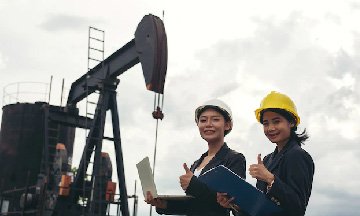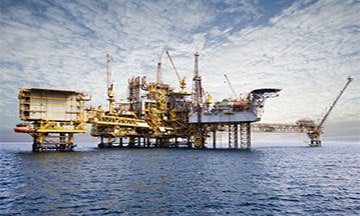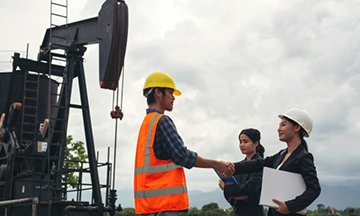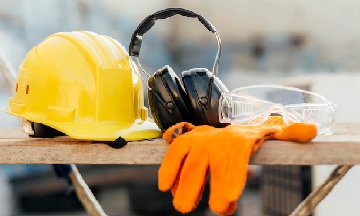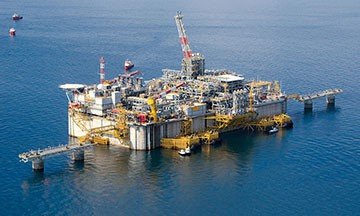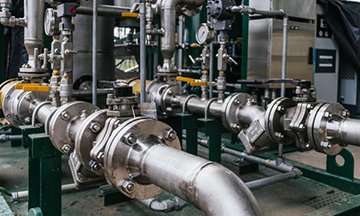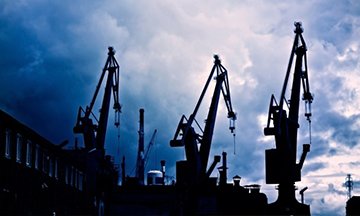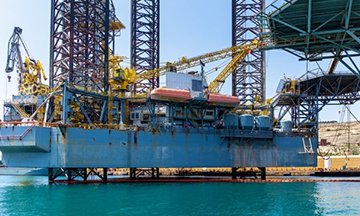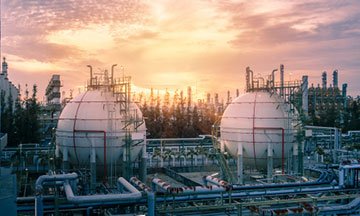Oil and Gas Field and Platform Supervisory Program
Course Overview
This course will train the participants on various methods of supervisory operations and how to develop an effective process.
What does an oil field supervisor do?
Oil and Gas field supervisors are important in maintaining safety and ensuring quality is maintained. The supervisors have a higher responsibility and legal obligation to understand their nature of work and what they have to do when in their workplace.
‘The oil and gas field supervisory program’ is intended to give the participants in-depth knowledge and skills that will enable them to fulfil their duties as oil and gas supervisors. The course will cover effectively managing and handling costs, human resources at work, and different hazards. After completion, participants will have understood supervisory principles such as Acid Gas removal or what is infamously known as Gas sweetening, Dehydration, Liquid Petroleum Gas production, HCDP (hydrocarbon dewpoint control), and NGL recovery and separation or fractionation.
Handy skills of problem handling and troubleshooting will be taught in this course in addition to phase separation, heat transfer, distillation, and hydraulics. Automated monitoring systems, pumps, separators, and separator systems will also be taught in this course. This course will help the supervisors and other interested professionals to be effective at leading and making good decisions, hence fulfilling their responsibilities.
What are the supervisory responsibilities?
It is important for participants to understand how to handle human resources working under them. It is part of the supervisory job to hand the people under them to avoid human error, which does not end. Some of the key areas this course will focus on are:
- Unmanned/ automated and manned systems and platforms
- Transportation as an aspect of supervision
- Utilities that will enable supervisors to work smoothly
- Monitoring every aspect of production to enable smooth operation
- Communication during operation
- Control during normal operation hours
- Downstream relevant activities
- Oil production
- Gas production
Course Objectives
The goals that this course intends to achieve are:
- Provide professionals with the necessary knowledge, skills, and hands-on experience in the appropriate and needed aspects of oil and gas field supervision
- Help the participants fully and comprehensively understand the latest technologies, techniques, and methods of processing gas and oil safely
- Equip the participants with the much-needed skills to take up high-level responsibilities of being a great leader and supervisor
- Help the participants to gain applicable knowledge and skills in handling SCADA systems, PLC, and DCS systems
- Give the undertakers the relevant skills to accurately identify various types of heat transfer appliances, pumps, separators, and distillation machines
- Help participants understand and use various methods in VALID DIAGNOSTIC ACTIONS
- Give the participants the power to handle and undertake remote supervision of various oil and gas production platforms
- Illuminate more light on the work permits, preventive measures, repairs, and supervision of production platforms
- Be skilled with ESD and instrumentation systems
- Help the participants recognise and appreciate the advantages of solving production and processing problems together with troubleshooting
- Enable the participants to work in teams to understand the environment and safety considerations
Training Methodology
All the courses offered at our institution are designed and customised to give the participants maximum possible knowledge and understanding of the courses. This is achieved by mixing various forms of content delivery, such as the use of videos, case studies, theoretical classroom attendance, and practical illustrations. This course will be delivered by a professional who is reputable and highly experienced in their domain of operation. All the trainees are encouraged to be active and participate fully through group and individual activities and engagements.
Like all our Zoe courses, this supervisory program will also follow the ‘Do-Learn-Apply-Review’ model of competency growth through training.
Organisational Benefits
Participants who will take up this course will tremendously benefit their organisation in the following ways:
- Improved management of organisation from the experience and knowledge gained from being trained in this course
- Better prediction and evaluation of hazards in gas and oil production
- Regular training of other employees on various issues, including globally acceptable standards and practices
- Improved credibility due to adhering to acceptable standards and concepts of managing oil and gas production
- Precise decision making in the future concerning production supervisory works using modern principles and technologies
- Increased knowledge acquired from this course in terms of data and information
- Implementation and application of highly advanced concepts in oil and gas production
- Increased client satisfaction because of good leadership
Personal Benefits
- Improved understanding and knowledge, and experience of advanced techniques and methods that will generate innovative ideas
- Better understanding and enhanced abilities to give better solutions that will guide production operations
- Improved confidence and skills to enable other employees to understand great and deep concepts through training
- Enhanced analytical knowledge to effectively and precisely make decisions concerning a task
- Knowledge and in-depth understanding of best practices and concepts
- Improved abilities to recognise the most cost-effective methods and procedures for a platform supervisory
- Better chance to give authoritative solutions to production problems
- Grasping of complicated operations undertaken during production to keep and maintain high standards of oil and gas production
- Enhanced foresight to face challenges, predict hazards and risks and make informed decisions that will avoid dangerous conditions
Who Should Attend?
This course is designed with the following people in mind.
- Facilities foremen responsible for site management
- Junior process engineer interested in taking higher-level positions
- Facilities engineer who should be making advanced decisions
- Company men who want to adhere to international standards
- Production foremen who should improve oil and gas production in different platforms
- Production engineers to strategies and implement better production designs
- Production supervisors who want to improve the quality of decisions they will be making and offer better leadership
- Fuel control operators
- Room control operators who wish to improve their skills
- Production operators
- Platform engineers to enhance platform supervisory
- Maintenance engineers
- Maintenance foremen
Course Outline
Module 1: Introduction and Definition of Terms
- Instrumentation definition and specifications
- Production specifications
- ESD systems
- Valve types and design
- Equipment arrangement and layout
- Piping
- Gas and oil production platforms
- Gas freeing
- Oil storage facilities and types
- Process design basics, reliability, and operability
- Safety concerns
- Sustainable development definitions
Module 2: Safety, Supervision and Operations
- SIMOPS
- Safety issues in SIMOPS
- Utilities
- Transportation issues
- Monitoring of towers
Module 3: Process Monitoring
- Flare re-circulation systems
- Monitoring
- Distillation
- Getting transportation
- Problem-solving skills
- Cleaning of Crude oil in storage facilities
- Dehydration
- Separators
Module 4: Operations, Services and Monitoring
- Gas hydrates
- Compressors
- Turbines
- Centrifugal pumps
- Metering
- Heat exchangers
- Positive displacement pumps
- Surface facility and operations
- Tank mixing and blending
Module 5: Safety Monitoring
- Using SCADA to monitor
- Work permits acquisition
- FPSO (Floating Production Storage and Offloading)
- Goals definition
- Good supervision skillsets
- Personal performance and factors affecting them
- Environmental issues
Module 6: Safety Process
- HSE codes, legislation, and standards
- System integration methods
- Manned and unmanned facilities
- Handling manned and unmanned production facilities
- Interpersonal skills in different platforms
- Gaining skills of good supervision
- Monitoring safety
- Diagnostic processes and actions
Module 7: Process Control
- Introduction to PLCs
- Configuring PLCs for remote monitoring and access
- Introduction to DCS
- Configuring DCS
- Security concerns
- Effective communications
- Processes control
- Data analysis after acquisition
- Process Automation
Module 8: Managing Production Platforms
- Common safety orientation
- Hazard management
- Reducing risks
- Keeping the storage facilities manageable
- Gas leakage control
- Gas leakage identifications
- Building capacity and reliable teams
- Building safety awareness
